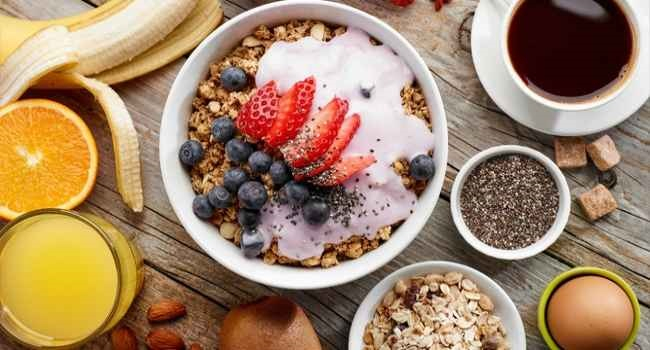Skipping breakfast and eating late significantly increases risk of death after heart attack
 20:29 19 April, 2019
20:29 19 April, 2019That’s the bottom line from a new study published in the European Journal of Preventive Cardiology, which found that people who skip breakfast and eat a late dinner have much worse health outcomes after surviving a heart attack.
In fact, people who did both of these (common) eating habits were four to five times more likely to die, have another heart attack or suffer chest pain within 30 days after leaving the hospital.
“Our research shows that the two eating behaviors are independently linked with poorer outcomes after a heart attack, but having a cluster of bad habits will only make things worse,” wrote study author Dr. Marcos Minicucci, of São Paulo State University in Brazil.
He also warned that “People who work late may be particularly susceptible to having a late supper and then not being hungry in the morning.”
It’s hard to get a definitive number on what time Americans have their evening meal, however. A 2003 report put the most common US dinner time between 6 and 7 p.m., although plenty of people still reported supping until 11 p.m. or so.
After all, long working hours are eating into meal times — a recent survey found that Americans work late 2.5 days a week — or, half of the workweek. And half of them admitted to eating more fast food when going into overtime. And those lifestyle factors, combined with a strong economy, have spurred Americans to dine out more and buying more prepared foods.
Now, this new European Journal of Preventive Cardiology does specifically call out heart attack survivors (who were mostly male and at a median age of 60) for being at greater risk of heart problems and early mortality for eating late and skipping breakfast.
But previous research suggests that many people whose meal times are out of whack should also consider adjusting their schedules.
The American Heart Association conducted its own study on eating high-calorie meals after 6 p.m. last year among Hispanic adults. More than half of participants in the Hispanic Community Health Study/Study of Latinos reported eating more than 30 percent of their daily food intake that late — which was associated with a 23 percent higher risk of developing high blood pressure and a 19 percent risk of becoming prediabetic, compared with those who ate most of their calories before 6 p.m.
Nighttime eating was also associated with being overweight and obese, or having more fat in the midsection; all of these are associated with cardiovascular problems.
A University of Pennsylvania report also found that adults who switched from eating between 8 a.m. and 7 p.m. to eating during a later noon-to-11 p.m. window (so, also skipping breakfast) gained weight and saw increases in their insulin, blood sugar, cholesterol and triglycerides, which can harm the heart.
And skipping breakfast could make you hungrier later in the morning or afternoon, which spikes blood sugar (which increases risk for diabetes, high blood pressure and high cholesterol, which in turn are risk factors for heart attack and stroke.)
Research published in the Journal of the American College of Cardiology found that skipping breakfast was associated with the hardening the arteries. And a Harvard study found that men ages 45 to 82 who skipped breakfast had a 27 percent higher risk of heart attack or death from heart disease than those who ate the morning meal.
Plus, employees perform better when they fuel themselves with a well-balanced breakfast. The International Labor Organization estimates that a good breakfast can boost productivity levels by 20 percent.
Dr. Minicucci recommended at least a two-hour interval between dinner and going to bed and encouraged people to begin each day with a healthy breakfast that includes dairy products (fat-free or low-fat milk, yogurt or cheese), a carbohydrate (like whole-wheat bread, bagels and cereals) and whole fruits.
“It is said that the best way to live is to breakfast like a king,” he said. “It should have 15 to 35 percent of our total daily calorie intake.”
Source: New York Post